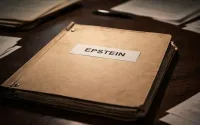Published on Friday, April 22, 2005 by In These TimesPat Aufderheide
Our media environment is very noisy, abundant, even polluted. Columbia journalism professor Todd Gitlin calls it "media unlimited." while writer David Shenk calls it "data smog."
We have never had more stuff to hear, see, scan, play, select, view. We've never had more channels, and we're about to get so many more—check your cell phone for updates, and plug in that iPod.
The problem of having too much media is where to start when we think about media reform. Our own efforts to control our selections, combined with the efforts of large corporations to channel our choices, pose new challenges for people who know that democratic action depends on trustworthy communication.
Big media corporations—let's just call them Big Media—like to assure the American public that we have all the information we need, and all the voice we want. And so we don't need any regulations that put limits on Big Media.
And actually, I'm sure it's true that I could find the information I need—if I knew I needed it, and knew where to get it. I'm pretty sure that I can figure out how to make an audio file and upload it, too. But that is not the same thing as having useful communication. For that, I need reliable and consistent information, and I need other people who share that information. That shared information helps people see themselves as members of the public, meet other members of the public and act as the public. Public communication makes democratic process possible.
Outside the high gates of Big Media—where reality shows, sports, "Desperate Housewives" and Budweiser commercials add up to our shared culture—there is all of Little Media. And Little Media—our blogs, our podcasts, our Web sites, our DVDs, our e-mail lists—is an uncharted territory full of confusing and contradictory information.
Unless we have friends, we can't make our way through it, and some of our friends are busy e-mailing us bogus petitions to save NPR. (If your well-intentioned, alarmed, book group buddy emails you a petition urging you to save the NEA, PBS, NPR or "Sesame Street," just send her to http://www.snopes.com for an urban legend check.)
Big Media makes us cynical and Little Media makes us run for shelter.
This is a moment when public media outlets can make a powerful case for themselves. Public radio, public TV, cable access, public DBS channels, media arts centers, youth media projects, nonprofit Internet news services such as OneWorld, low-power radio and webcasting are all part of a nearly-invisible feature of today's media map: the public media sector. They exist not to make a profit, not to push an ideology, not to serve customers, but to create a public—a group of people who can talk productively with people who don't share their views, and defend the interests of the people who have to live with the consequences of corporate and governmental power.
All of them are little miracles. All of them were created by people who believe that democracy cannot afford purely profit-driven media. All of them suffer financial crises, a hostile policy environment, founder burnout, and the disappointment of producers and audiences who wanted so very much more.
In a "Too Much Media" environment, public media could be our public parks. Big Media filter our choices through branding. They also filter them through manipulation of our access (like our cable provider) and of our content (like our cable TV menu or a browser that redirects us). Little Media funnel our choices through trust networks, some of which really aren't trustworthy, especially for learning about people we don't agree with. Between the two, we are buffeted by profit, partisanship and passions.
Public media can speak to us as members of the public, and introduce us to others. Sometimes they even do.
Look at what happened when thousands of people who watched Stanley Nelson's "The Murder of Emmett Till" on their public television channels joined a postcard campaign that re-opened the murder case after more than half a century. Look at NPR's courageous coverage of the Iraq war, an expensive endeavor that wins no points from this administration. Look at Chicago Access Network's Community Forum, where nonprofits throughout the region can showcase their issues and find volunteers.
The disappointment progressives often voice about public media is earned. "Antiques Roadshow" doesn't make this nation a better democracy. "Car Talk" is not for people who take the bus. Public radio did side with corporate radio against low-power radio advocates. The sector is full of small, embattled actors who often are busiest fighting with each other.
Yet the public media sector is still a very important resource for a noisy and polluted information environment. It's worth investing in our local public media projects, and demanding the best. For instance, many of our public TV stations are not airing programs they could. Ask them if they're carrying "Independent Lens," a highly-diverse social documentary series, at an hour most people could see it. It's worth starting new ones—like the public access cable channel in Philadelphia. It's worth finding out how public-minded projects in a community can work with local public media. We need media services and content dedicated to the challenge of forming—not just informing—a public.
http://www.commondreams.org/cgi-bin/print.cgi?file=/views05/0422-32.htm






